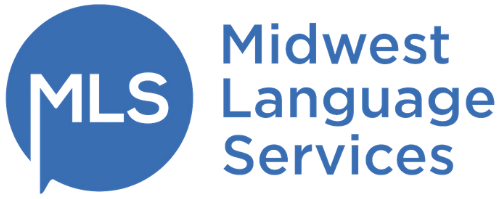Do you have a passion for foreign languages? Have you ever thought about becoming a translator or interpreter? Careers in language accessibility are increasingly important with expanding global markets. I interviewed two professionals from these fields to help you get a better idea of what these careers entail as well as some advice for those looking to join. Learn more about translation and interpretation from Bénédicte and Bayda.
Bénédicte, translator:
Alexa: Where are you from and what is your native language?
Bénédicte: I was born and grew up in a small village in Alsace, in France, therefore my native language is French.
Alexa: Which languages do you translate?
Bénédicte: Currently, I translate from English and Italian into French.
A: How long have you been studying these languages?
B: I’ve studied English for a little over ten years, while I’ve only studied Italian for five years.
A: Where did you start to learn them?
B: For English, I started learning when I got to middle school, in 6th grade, whereas I started to learn Italian much later, when I started college.
A: What is your educational background?
B: I first obtained my high school diploma in sciences (baccalauréat scientifique) before really starting to lean towards languages. Once I had my diploma, I started my bachelor’s degree in Applied Modern Languages at the University of Strasbourg. I spent my third year abroad through the Erasmus Exchange Program (European study abroad program) at the University of Nottingham Trent in England. Then, I turned towards translation. I decided to apply for the Master of Professional Translation at the Institute of Translators, Interpreters, and International Relations (ITIRI) in Strasbourg. Through this program, I was able to spend a year at the Altiero Spinnelli Civic School of Interpretation and Translation (Civica Scuola Interpreti e Traduttori Altiero Spinelli) in Milan.
A: What made you decide to go into translation?
B: I chose translation because I love practicing languages and I am committed to making content more accessible to a larger number of people.
A: Do you work as a freelancer or with an agency?
B: Upon finishing my master’s degree, I decided to be a freelance translator.
A: Why did you make this choice?
B: To me, this was the obvious choice after completing my internship alongside Cindy Mittelette-Longuet, the founder of Passionatrad, who herself works as an independent translator. In general, I like the liberties that this working style offers: I like to be able to work at my own pace and at hours that I am most productive – I like to be able to choose the projects I work on, and I like to be able to make decisions that concern myself. I was also drawn to this career’s diversity; no two days are alike. In fact, as an independent translator, my schedule isn’t only filled with translation, but also with prospecting, accounting, and networking, among other things.
A: In your opinion, what are the most important qualities in a translator?
B: To name only three, I think that a translator needs to be curious, rigorous, and organized. In my opinion, curiosity and rigor are vital to translators so that they are able to create quality translations. Lastly, organization is a key element that that allows you to not become overwhelmed, to meet deadlines, and to be able to plan ahead.
A: Is there anything in your career that you dislike?
B: The most complicated aspect for me is always working in front of screens.
A: Do you have any advice for students who would like to become translators?
B: Believe in yourself and put yourself out there. Be an avid reader, do career research and don’t hesitate to ask questions. All of the translators that I have met and have had the pleasure of speaking with have always seemed open and gladly responded to my questions.
Bayda, Interpreter:
Alexa: Where are you from and what is your native language?
Bayda: I am from Syria and my native languages are Arabic and French.
Alexa: Which languages do you interpret?
Bayda: I interpret French, Arabic, and Spanish.
A: How long have you been studying these languages?
B: French and Arabic since I was born and Spanish since 1990.
A: Where did you start to learn them?
B: At home and at school.
A: What is your educational background?
B: I have a Bachelor’s in French Literature and a diploma to teach French as a Second Language. I also have a Master’s in Education – Curriculum and Instruction.
A: What made you decide to go into interpretation?
B: A love for languages and the ease of switching between languages from a very young age.
A: Do you work as a freelancer or with an agency?
B: I’m a freelancer.
A: Why did you make this choice?
B: No specific reason. I am also open to working with an agency.
A: In your opinion, what are the most important qualities in an interpreter?
B: An interpreter should be knowledgeable in a wide array of domains and should always work on expanding his/her vocabulary. An interpreter should always be careful to interpret onlywhat is being related without adding to or subtracting from what is being said by the client. One more thing, an interpreter should use “I” when interpreting for an individual.
A: What do you like most about being an interpreter?
B: Work flexibility and meeting many people from different backgrounds and different parts of the world.
A: Is there anything in your career that you dislike?
B: No.
A: Do you have any advice for students who would like to become interpreters?
B: You have to love what you do.
Hopefully these two have given you some insight into both translation and interpretation!


